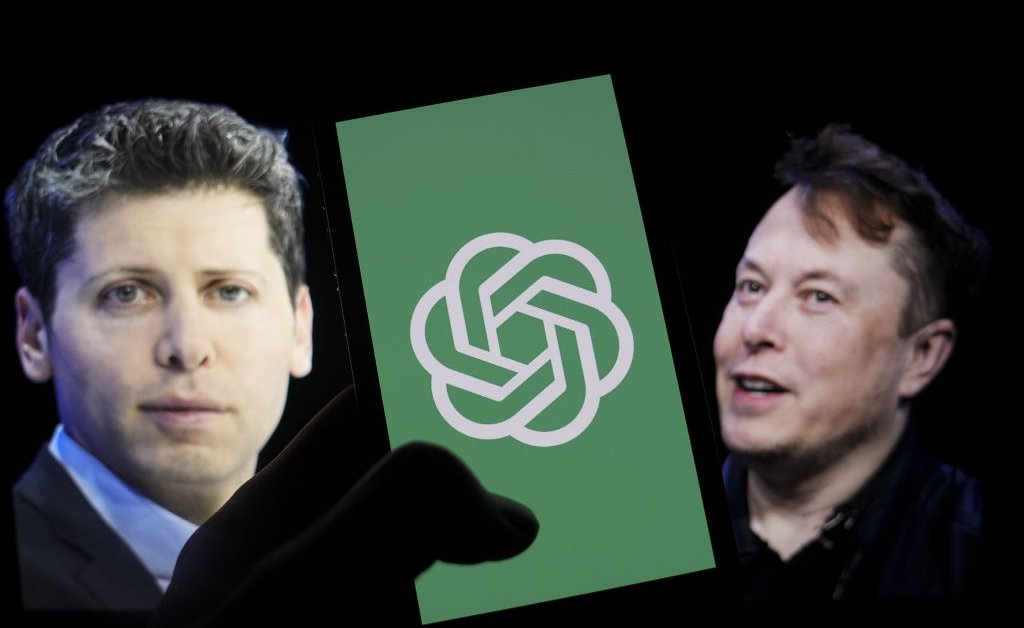The unnamed cybercriminals trying to scam seniors out of their money got more than they bargained for when they targeted Tejasvi Manoj’s grandfather back in February 2024. Tejasvi, then a 16-year-old junior at Lebanon Trail High School in Frisco, Texas, was driving home from Scouting America camp with her father when he suddenly noticed five missed calls on his phone—all from his 85-year-old father. He called back, and the older man reported that he had received an urgent email from another relative, Tejasvi’s uncle, asking for $2,000 to settle an unexpected debt. Given the apparent emergency, Tejasvi’s grandfather was prepared to transfer the funds—but her father urged him not to and the grandfather, at the suggestion of his wife, then called the uncle to see if the request was legitimate.
“I never asked you for money,” came the response. “Please don’t send anything until I can look into what’s going on.”
It was a near miss for the unsuspecting senior. The fact that criminals would seek to take advantage of an old man’s lack of sophistication about the workings of the internet galled Tejasvi. When she got home she went to her room and immediately began researching how common such scams are. Very common, it turns out.
In 2024, the FBI’s Internet Crime Complaint Center received nearly 860,000 reports of scams, with potential losses exceeding $16 billion. Of those, acts of fraud targeting people over the age of 60 accounted for nearly $5 billion, a 32% increase over the previous year. Seniors represent a target-rich cohort for the bad guys. They’re typically retired, sitting on pensions and 401(k)s, and may be naive to the techniques favored by con artists and reprobates who run riot on the internet. According to the Federal Trade Commission, the number of older adults who lost more than $10,000 to online scams increased fourfold from 2020 to 2024. For those who lost $100,000 or more, the increase was seven-fold, for a total of $445 million in 2024 alone. And none of those figures includes losses victims were too embarrassed to report.

“Tejasvi was surprised that there was such a lack of awareness among her grandparents,” says Aishwarya Manoj, her mother. “It was like, Why did you not know? That’s when she went on with her research and found out that it was not an isolated case with her grandparents, but a much larger problem.”
Older Americans clearly need protection, and Tejasvi was determined to provide it. Within the year she had built and launched Shield Seniors, a website designed to educate the 60-plus demographic about what online scams look like, analyze suspicious emails and messages users upload, and, if the communications prove fraudulent, provide links to report them. The site is currently available in a private preview mode only, pending more R&D and fundraising, but is already—like its creator—making itself known. Tejasvi was recognized with an honorable mention in the 2024 Congressional App Challenge; delivered a 2025 TEDx talk in Plano, Texas, about the need to build “digital bridges” to all demographics; and makes occasional appearances at local assisted-living facilities, demonstrating her website and teaching seminars about cybercrime.


“I remember going to my first seminar and I was super nervous,” says Tejasvi, whose work has earned her recognition as TIME’s Kid of the Year for 2025—and as the first such honoree to also be a TIME for Kids Service Star, taking part in our sister publication’s program highlighting young people making a positive impact. “What if no one shows up? What if I totally mess up?” She didn’t mess up—totally or otherwise. “There were so many people who were really interested—taking notes on their notepads, which was really nice. At the end some of them came up to me with questions, and I was able to help them.”
Learn more about Service Stars here.
Shield Seniors didn’t come easy. For one thing, Tejasvi had a lot of other activities to attend to. She is active in Scouting America—recently receiving her Eagle Scout rank—and plays violin in her school orchestra. She tutors Bhutanese refugees online in math and English through an organization called Vibha, a nonprofit involved in workforce and scholastic development in India. She also does volunteer work—serving on the leadership board of the North Texas Food Bank Young Advocates Council and packing meals, with the social-enterprise company TangoTab, for families facing food insecurity.
“I started volunteering in sixth grade,” she says. “I think it’s really important; if you’re lucky yourself, you want to make sure other people feel loved and lucky too.”
Shield Seniors presented another way to do that, and Tejasvi was well prepared to do the coding that would make the project possible. Both of her parents work in the IT domain—in fact, her father Manoj Ganapathy adds, “everyone in my family is into tech”—and she grew up fluent in the language of computers.
Tejasvi began coding in eighth grade, taking cybersecurity classes and attending summer programs sponsored by the nonprofit Girls Who Code. She has also gotten involved in Cyber-Patriot, a joint Air Force and Space Force program to spark interest in cybersecurity and STEM disciplines among young people.
“I code mostly in Java and Python, and a bit of HTML,” Tejasvi says. “I really love the fact that you can solve problems with your computer, and I really like creating.”
Throughout the development of the site she tapped her on-site experts—her parents—for help, and reached outside the home too. Aarathi Rajamanickam, a neighbor and software-engineering manager in the banking sector, has served as Tejasvi’s mentor for several years and regularly provided counsel.
“Because I work in cybersecurity I see these kinds of [fraud] cases come by on an almost daily basis,” says Rajamanickam. “For Shield Seniors I’ve been a mentor, I’ve been a guide, I’ve been a sounding board.”
Then, in February, after an early version of the site was ready, a story about Shield Seniors and Tejasvi appeared in the Dallas Observer, bringing her to the attention of the people at AARP. “They set up a meeting where I walked them through the website, and they were very impressed,” Tejasvi said in a follow-up email to TIME. “They provided feedback and guidance, and shared my work on LinkedIn, helping me connect with a wider network of people.”

The website that has resulted from all of this work is equal parts intuitive, smart, and artful. Shield Seniors is divided into four principal sections. The first is labeled “Learn,” and helps users master the basics of internet security, such as the importance of creating strong passwords, understanding privacy settings, knowing what information to share and what not to share, and, most important, recognizing what a scam looks like. “Make sure to be aware of common tactics used to scam seniors, such as by creating fake charities,” the website reads. “Be careful with unexpected messages, especially those that rush you or seem too good to be true.”
The second section, labeled “Ask,” takes users to a chatbot that answers questions. Interacting with a population that was already approaching middle age when the internet appeared, Tejasvi’s bot keeps its answers simple—holding them to two sentences or even less.
“If you ask ChatGPT or Gemini questions about cybersecurity, they are going to give you, like, 10 paragraphs of answers with very hard-to-understand terminology,” she says. “That works for some people, but it doesn’t work for most older adults.”
“What her portal does, for lack of a better word, is to dumb it down,” says Rajamanickam, “to kind of make it very simple.”
The third section, labeled “Analyze,” is where the true brains of the site live. When users click this tab they’re directed to a page that allows them to upload a suspicious text or email, which an AI system will then analyze with what Tejasvi says is 95% accuracy at determining what’s a scam and what’s not a scam. Then, it goes beyond just providing a digital thumbs-up or down.
“It will also explain why,” she says, “because our goal for Shield Seniors is to make sure older adults are independent and know what to look for. We want to make sure they’re able to navigate the online world confidently, with independence, and with dignity.”
Finally, the site includes a “Report” section that allows users to rat the fraudsters out. The site provides links to 14 private and government groups that accept and act on complaints, including the FBI, the Better Business Bureau, the Social Security Administration, AARP, the SEC, and the Consumer Financial Protection Bureau. Just which group is the right one to contact depends on just which kind of fraud was committed. The FBI, for example, is a sort of one-stop-shopping site for all manner of cybercrime, including identity theft, computer intrusions, investment fraud, phishing, and ransomware. The Consumer Financial Protection Bureau responds to complaints involving financial products and services including bank accounts, credit reports, and payments made or requested.
“This is supposed to bring people a sense of ‘You’re not alone,’” says Tejasvi. “A lot of people are embarrassed that they got scammed, but this isn’t something you should be embarrassed about. It’s just a learning experience. You should report it to help make sure it doesn’t happen to anyone else.”

Shield Seniors is a formidable site, with a formidable array of resources provided to give users redress—or at least the satisfaction that they’ve blown the whistle on bad actors doing bad things in what should be a safe public space. The site itself is made to feel safe too. Tejasvi designed it with large-font type to make text easier to see and read, and a soft, blue theme intended to be soothing to people who may come to the site fresh from a scam and be fearful or frazzled. Tejasvi test-drove early versions of the site with her grandparents and other older members of her community before she settled on its current design.
Still, Shield Seniors is very much a work in progress. It currently relies on a free AI engine, which limits its power and the size of the audience it can host—hence its private preview status. Tejasvi’s fundraising work is partly devoted to allowing her to transition to a larger, commercial AI platform. “We plan to open it to a wider audience once we secure funding to support broader access,” she said.

Meantime, like every other high school senior, Tejasvi is looking ahead. For college, she plans to apply to at least one school close to home—the University of Texas, Austin—as well farther afield, with her eye on schools ranging from Georgia Tech to Purdue. No surprise, she intends to major in computer science and minor in AI or cybersecurity.
And she’ll keep working to expand and improve Shield Seniors—and her personal footprint as well, hoping especially to be welcome in more assisted-living facilities where she can interact with seniors face-to-face. For now, she’s had the opportunity to visit just a few, with others telling her to come back when she’s had a little more experience. “I’m a bit young, I guess,” she says.
But that’s not stopping her from getting the message out as best she can, as she continues to advocate for seniors to become savvy and independent in cyber-space, and for their family members to help them gain the necessary experience and confidence.
“Just make sure to check up on your loved ones,” Tejasvi says, asked if she has any advice for those who want to join her in that quest. “Make sure that they’re staying safe online.”








